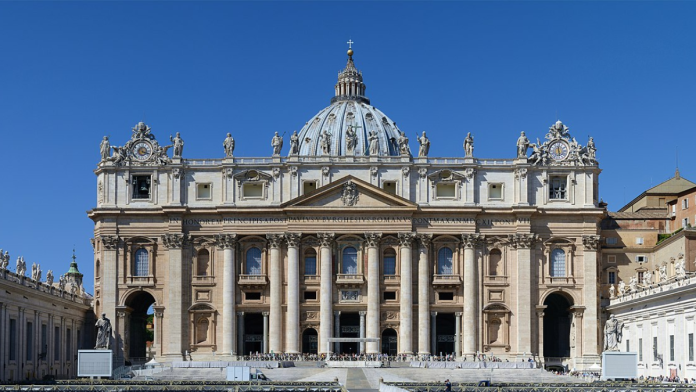The Vatican is facing explosive allegations that it may have secretly used a special tool to change details on bank transfers after they were sent.
According to former Vatican auditor Libero Milone, this tool could allegedly alter names and account numbers in international transactions. This would make it possible to hide who was really sending or receiving the money.
Such a tool, if it existed, could have allowed money to move without detection and might even enable unlimited money laundering. Experts say that would break some of the most basic anti-fraud rules used in global banking.
The claims come at a difficult moment for Pope Leo XIV, who is working to clean up the Church’s reputation after decades of scandals. The Vatican has strongly denied these accusations, calling them “completely unfounded.”
People who know how the global SWIFT bank transfer system works say it should be impossible to change a payment once it has been sent. SWIFT uses strong encryption and digital signatures to keep transactions secure. Still, the allegations are being taken seriously because of the credibility of those making them and because of the Vatican’s history of financial controversies.
Sri Lanka’s FIU fines 2 casinos and state bank over money laundering breaches
How the Allegations Emerged
The claims first surfaced when Libero Milone said he discovered the tool while investigating possible financial misconduct. He began looking into the matter after a request from Cardinal George Pell, who had been told about changes to the SWIFT system’s controls.
In a 2016 letter, Pell described the request to alter SWIFT controls as “potentially illegal.” Milone says he reported his findings to top Vatican officials, including Pope Francis and Secretary of State Pietro Parolin, but received no response from two key oversight bodies.
The payroll office of the Vatican, known as APSA, is at the center of the allegations. It reportedly stopped serving private clients in 2015 to avoid oversight from a European anti-money-laundering agency. Critics suggest that even after this, the tool could have been used to hide transfers involving private clients.
Milone claims he has a document proving that transactions could be changed “at any time,” but has so far refused to release it publicly. He also hinted at having more evidence but said he did not want to be accused of blackmail.
The Vatican insists APSA has been subject to multiple audits since 2020 by both internal and external watchdogs, including PricewaterhouseCoopers, and that no problems were found. Vatican spokesperson Matteo Bruni has firmly rejected the allegations.
🇹🇷 Crypto kingpin falls — Turkey seizes ICRYPEX assets in explosive money laundering crackdown
Past Scandals Resurface
The allegations risk bringing back memories of some of the Vatican’s darkest financial chapters. In the 1980s and 1990s, investigators looked into claims that Vatican-linked banks were used to launder money from criminal groups and fund political causes.
One high-profile case involved Milanese banker Roberto Calvi, nicknamed “God’s banker,” who was found dead under London’s Blackfriars Bridge in 1982. He was accused of helping move illicit funds through Vatican channels.
In more recent years, Cardinal Giovanni Angelo Becciu was convicted in 2023 for misuse of Vatican funds, including sending money to a charity connected to his family. Becciu was also found guilty over a failed London property investment that cost the Vatican more than €100 million.
These historic and modern scandals have damaged the Vatican’s image and shaken trust among donors. In recent years, donations have fallen sharply, creating budget problems for the city-state. The current leadership has tried to rebuild credibility by reporting higher profits from its financial institutions, but the latest allegations could undermine that progress.
